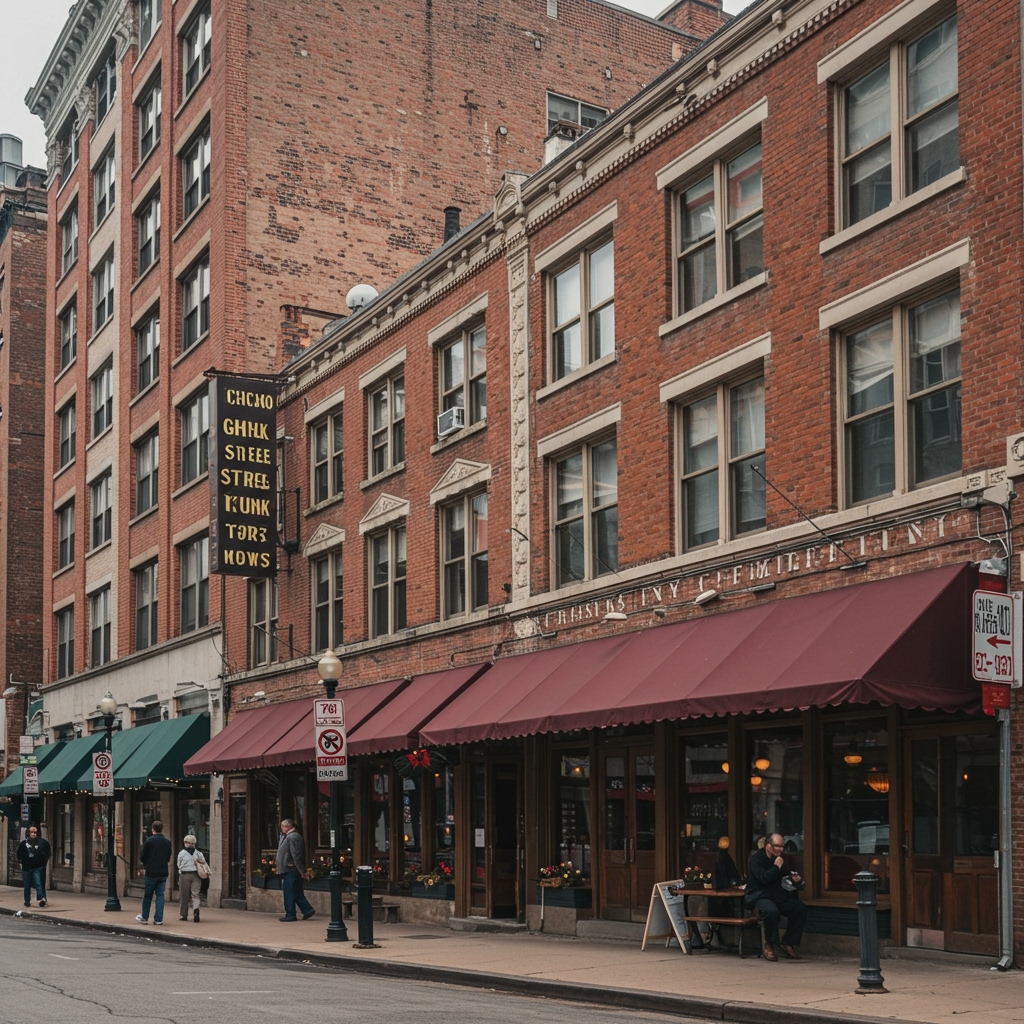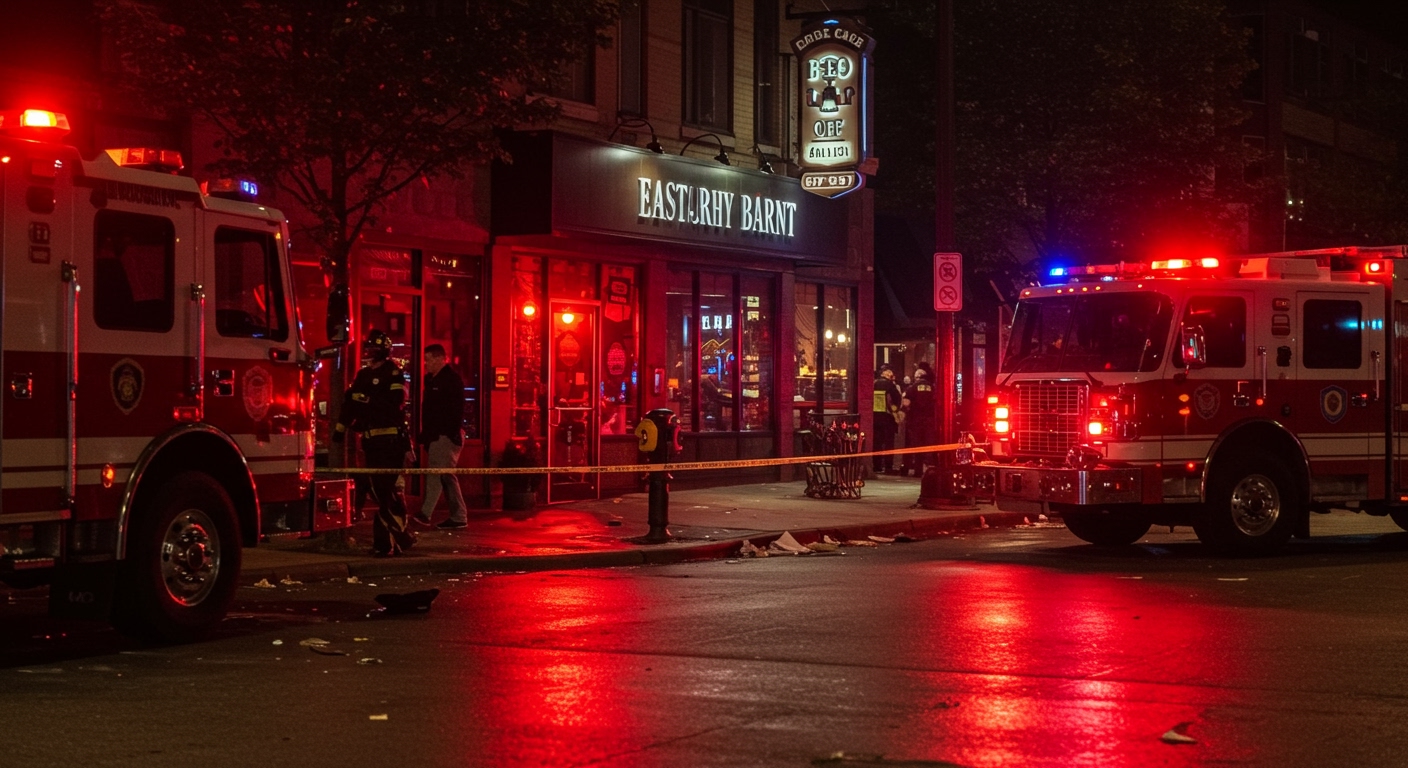Chicago’s vibrant nightlife scene, a cornerstone of its cultural identity and a significant economic engine, is currently the subject of intense discussion and proposed legislative changes at City Hall. At the heart of this debate is the potential expansion of late-night operating hours for bars and clubs through the proposed 4 AM Liquor License Expansion Ordinance. This measure, aimed at providing a boost to the hospitality sector, has sparked varied reactions, highlighting the complex balance between fostering economic activity and preserving the quality of life for urban residents.
The City Council Committee Hearing
A critical juncture in the legislative process occurred on April 16th, when the City Council Committee convened a hearing to review the proposed ordinance. This session provided a platform for stakeholders, including industry representatives, community leaders, and concerned residents, to voice their perspectives. While proponents emphasized the economic benefits – potential increases in revenue, job creation, and Chicago’s competitiveness as a global city – opponents raised significant concerns regarding the potential negative impacts of extended hours. Issues such as increased noise levels, traffic congestion, public safety challenges, litter, and disturbances in residential neighborhoods adjacent to nightlife venues were prominently discussed, underscoring the need for careful consideration and potential mitigation strategies.
The Chicago Nightlife Coalition’s Response
In the wake of the comprehensive committee review and the diverse feedback received, the Chicago Nightlife Coalition (CNC), a prominent organization representing a substantial number of bars, clubs, and entertainment venues across the city, has taken a proactive step. Recognizing the importance of addressing community concerns while advocating for the industry’s interests, the CNC issued a public statement on April 19th. This statement outlined the coalition’s official position following the hearing and, crucially, proposed several key amendments to the original 4 AM Liquor License Expansion Ordinance. The CNC’s recommendations are framed as a constructive effort to bridge the gap between the industry’s operational needs and the legitimate concerns of residents, seeking to create a framework where late-night operations can thrive responsibly.
Proposed Amendments: A Closer Look
The amendments put forth by the Chicago Nightlife Coalition are designed to introduce specific safeguards and operational requirements for venues seeking extended hours. The proposal focuses on three primary areas:
First, the CNC recommends implementing strict geographic zoning. This measure would effectively limit the issuance of late-night licenses to designated “entertainment districts” or commercially zoned areas away from dense residential blocks. The rationale is to concentrate late-night activity in specific areas that are better equipped to handle potential impacts such as increased foot traffic, noise, and transportation needs. This targeted approach aims to protect the character and tranquility of residential neighborhoods while still allowing for the growth of the late-night economy in appropriate locations.
Second, the coalition proposes mandating enhanced soundproofing measures for all participating venues. Noise pollution is a significant concern for residents living near bars and clubs operating late into the night. The CNC’s proposal suggests that venues wishing to obtain a 4 AM license would be required to invest in substantial sound mitigation technology and structural modifications to minimize noise bleed into surrounding areas. This could include upgraded windows, doors, wall insulation, and potentially stricter requirements on outdoor sound levels. The aim is to directly address one of the most common sources of resident complaints associated with late-night establishments.
Third, the Chicago Nightlife Coalition suggests the creation of a dedicated fund aimed at bolstering public safety in areas with extended operating hours. The proposal posits that this fund could potentially be supported, at least in part, by fees collected from venues operating with 4 AM licenses. The purpose of this fund would be to increase Chicago Police Department presence and resources specifically in these late-night entertainment zones. This proactive measure is intended to deter potential crime, manage crowds, and respond more effectively to any incidents that may arise during extended operating hours, thereby enhancing safety for both patrons and residents.
Balancing Economic Vibrancy and Resident Concerns
Commenting on the coalition’s proposals, CNC President Sarah Chen articulated the core philosophy behind the recommended changes. Chen stated that these modifications are designed to achieve a crucial balance: fostering the significant economic benefits that a thriving late-night industry brings to the city – including jobs, tax revenue, and tourism – while simultaneously protecting and improving the quality of life for Chicago residents. The CNC views these amendments not as concessions, but as necessary components of a responsible and sustainable framework for expanding late-night operations. By proactively addressing potential negative externalities like noise and safety, the coalition hopes to build broader community support for the ordinance.
The Path Ahead
The Chicago Nightlife Coalition’s amended proposal represents a significant development in the ongoing debate over the 4 AM Liquor License Expansion Ordinance. While the original proposal sparked considerable discussion and revealed community apprehensions, the CNC’s suggested modifications signal a willingness from a key industry group to work towards solutions that acknowledge and mitigate potential downsides. The coalition anticipates that their revised proposal will be formally introduced for consideration by the City Council License Committee in subsequent sessions. This means the legislative process is far from over. The committee will likely review the proposed amendments, potentially hold further discussions or hearings, and ultimately decide whether to incorporate these changes into the ordinance before it moves forward for consideration by the full City Council. The outcome of this review will be pivotal in shaping the future of Chicago’s late-night landscape.















